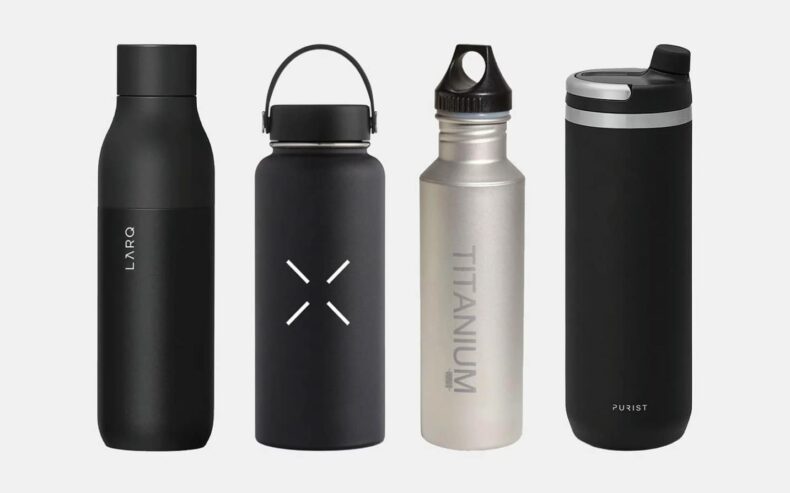Table of Contents
Reusable bottles
Reusable bottles are dirtier than toilet: A recent study claimed that reusable bottles have proven to be acutely health hazardous. The research confirmed that reusable bottles are an ecosystem of 40,000 times more bacteria in one’s toilet seat.
This was a study by a team of experts from a US-based website, waterfilterguru.com, that discovered your “very-friendly” reusable bottles were not friendly enough.
People who do not simply get rid of reusable bottles over a long period are the ones who need to take responsibility for their deeds.
The gram-negative bacteria could be infectious that could be tamed by the consumption of antibiotics, is what the researchers claimed. However, the bacillus types can cause gastrointestinal issues.
Microbiologist Dr Simon Clarke from the University of Reading asserted that irrespective of the numerous bacteria in the water bottle, they are not exactly hazardous to health. Rinsing the bottle with warm water can be a precaution for prevention. He continued by comparing the quality of the bottle’s bacteria colonies with the other household commodities and informed that bottles have twice as many germs as kitchen sinks. A computer mouse has four times lesser bacteria than a reusable water bottle. Even the water bowls have 14 times fewer bacteria than the bottles.
dirtier than your toilet?
The reusable bottles do house and breed numerous bacteria. However, it does necessarily sound like an alarm of potential health hazards because most of these organisms present in the bottle have already colonized the human mouth. Additionally, no care for a person ailing from drinking water in a bottle. Similarly, the taps are also not considered to be the issue.
The study claimed that the reusable bottles could be considered “portable Petri dishes”. Due to their housing capacity of 40,000 more bacteria than an ordinary toilet seat. The researcher used four types of bottles for sampling: the screw-top cover, the stray lid, the nozzle, and the squeeze-top lid, three times each. They discovered two different species of bacteria: bacillus and gram-negative.

The research examined the colony-forming units (CFUs) in these frequently used bottles. They found that gram bacteria like E. coli and Klebsiella can cause infections like pneumonia. And some categories of bacillus could cause gastrointestinal disorders like sickness, vomiting, and diarrhea.
CFU or Colony Forming Units is the commonly used unit to compute the number of bacteria in a lab test.
On average, all four types of bottles had 20.8 million CFUs of gram-bacteria. At least 30 million CFUs were computed in the spout and screw-top cap bottles. In comparison, an average toilet seat has 515 CFUs of bacteria.
According to the respondents in the study from the United States of America, 44% preferred stainless steel, and almost 39% preferred using screw-top lids for leakproof portability.
Almost 60% of the respondents claimed that they cleaned their water bottles once or more every day. A quarter of Americans prefer washing it a few times a week, while 10% of the respondents clean them a few times a month.
The study indicated that out of the four types of commonly used bottles, squeeze-top bottles are the cleanest. Comparatively, the other three bottles had 1/10th of the bacteria.
The experts further recommended that it was a necessity to wash the reusable bottles at least once a day with soap and hot water or sanitize it at least once every week.













